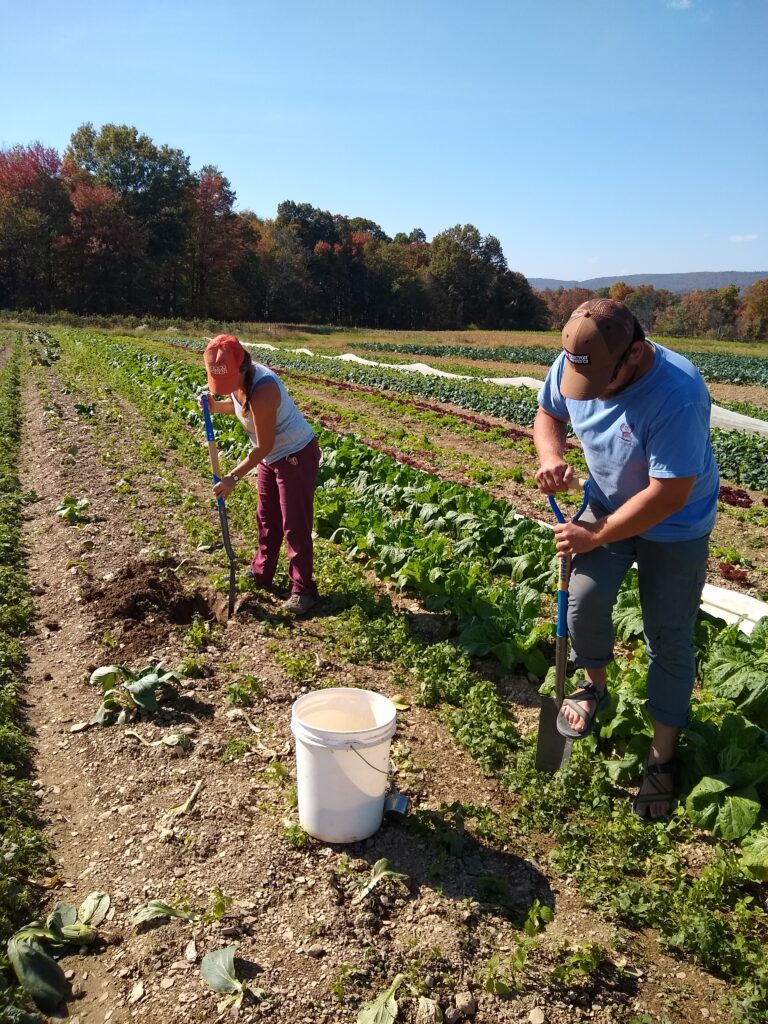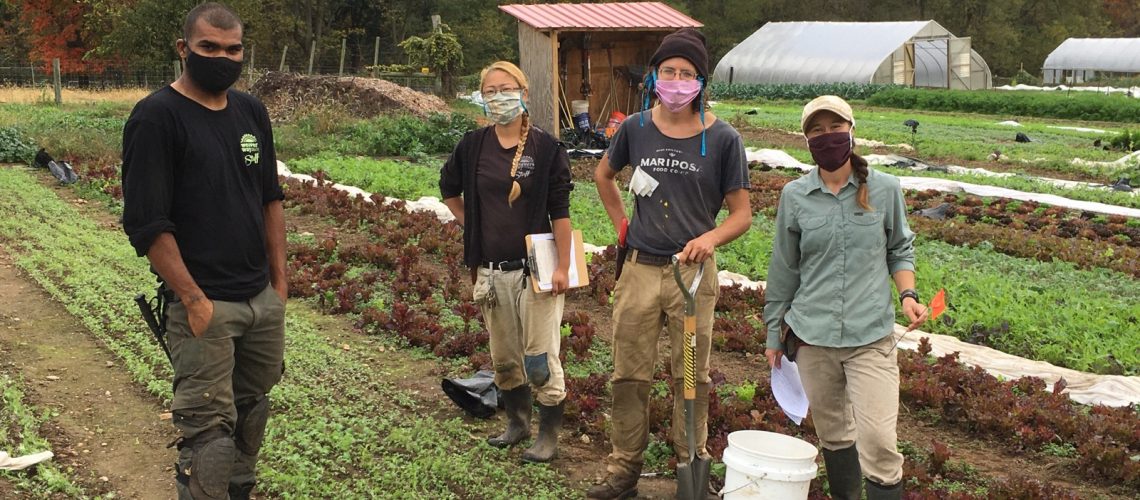Pasa, a Pennsylvania-based sustainable agriculture association, started out as a small group of Pennsylvania farmers interested in collecting and sharing their own resources and experiences around sustainable farming in the early 1990s. Since then, Pasa has invested in farm-based research, farmer training, and events and conferences about sustainable agricultural practices to support farmers and ranchers in bettering their communities and the environment.
While developing their research initiatives in recent years, Pasa found that many farmers had questions about their soil health and how it compared to other farms. In 2016, they launched a trial soil health benchmarking study, the first of its kind in the United States. Through this study, Pasa created an avenue for Pennsylvania farmers to collect, assess, and learn from soil health data that can assist them in their own management decisions.
After one year, the trial became an official research initiative of Pasa called the Soil Health Benchmarking Study. Since then, the study has grown to include several other partners representing hundreds of farmers and ranchers, including members of OpenTEAM such as Million Acre Challenge. Each year, farmers’ soils are tested and analyzed using the Cornell Soil Health Test, which provides insight beyond what most average soil health tests can give. Then, Pasa aggregates this data and provides farmers with individualized reports that give them a breakdown of their results and benchmarks them against their peers.
“It’s not enough to get the soil test results though,” says Sarah Bay Nawa, Research Coordinator for Pasa, “We want to figure out how farming practices and soil health outcomes correlate. We need management records that include equipment activity, planting, harvest dates, grazing, etc…” To truly understand soil health, one has to understand how the land is being used.
By collecting additional management records, Pasa is making headway on insights into the connections between farming practices and soil health outcomes. Farmers choose to share their management records with different tools. Some are using SurveyStack from Our Sci and farmOS, two tools from the OpenTEAM ecosystem, to share their data directly with researchers. For example, SurveyStack provides farmers with an online survey with pre-populated answers, making it easier to collect, store and compare data from farms across the network. These responses can then be fed into farmOS automatically, allowings farmers to track their farm management, planning, and record keeping digitally. When farmers use tools such as these, researchers can ensure that all data is entered in the same format for easier sharing and analysis.
As the study continues to grow, more and more farmers across the Eastern United States are actively participating by sampling their soils and sharing farm management records to learn how they can improve upon their own operations to build better soil health. The Maine Soil Health Network, led by Wolfe’s Neck Center for Agriculture & the Environment and Maine Farmland Trust, recently joined the study with their own regional cohorts. Now, more than 100 farms in Pennsylvania, Maryland and Maine are contributing soil health and management data to the study.
This year marks the sixth year of the study. As changes in soil health are slow, Pasa hopes to continue the study for at least ten years. Bay Nawa is excited about the future of the study, “Through this, we hope that farmers are able to make really strategic decisions about how they manage their farm to improve soil health. And, maybe see the beginning signs of that change soon.”




No comment yet, add your voice below!